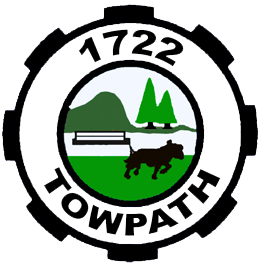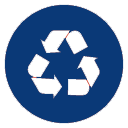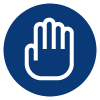Coronovirus Disease 2019 (COVID-19)

Updated: December 14, 2020
COVID-19 Testing Availability:
- www.zufallhealth.org
- 2019 Novel Coronavirus Outbreak (COVID-19) | Morris County Office of Health Management (morriscountynj.gov)
COVID-19 Vaccine Appointment Call Center: 1-855-568-0545
Coronavirus Information:
The Centers for Disease Control and Prevention (CDC) is closely monitoring an outbreak caused by a novel coronavirus in Wuhan, China that first emerged in December 2019. This outbreak began in Wuhan, China, but cases have been identified in a growing number of other international locations including the United States. The Mount Olive Health Department is working with State and Federal partner agencies to monitor the situation closely.
Gov. Murphy announced non-essential retail, and outdoor dining, to reopen June 15. Learn More Here. As we transition into re-opening the economy and start attending gatherings and events please keep in mind:
- A gathering refers to a planned or spontaneous event, indoors or outdoors, with a small number of people participating or a large number of people in attendance such as a community event or gathering, concert, festival, conference, parade, wedding, or sporting event.
- The more people an individual interacts with at a gathering and the longer that interaction lasts, the higher the potential risk of becoming infected with COVID-19 and COVID-19 spreading.
- The higher the level of community transmission in the area that the gathering is being held, the higher the risk of COVID-19 spreading during a gathering.
- The size of an event or gathering should be determined based on state, local, territorial or tribal safety laws and regulations.The risk of COVID-19 spreading at events and gatherings increases as follows:
- Lowest risk: Virtual-only activities, events, and gatherings.
- More risk: Smaller outdoor and in-person gatherings in which individuals from different households remain spaced at least 6 feet apart, wear cloth face coverings, do not share objects, and come from the same local area (e.g., community, town, city, or county).
- Higher risk: Medium-sized in-person gatherings that are adapted to allow individuals to remain spaced at least 6 feet apart and with attendees coming from outside the local area.
- Highest risk: Large in-person gatherings where it is difficult for individuals to remain spaced at least 6 feet apart and attendees travel from outside the local area.
Please Be Advised:
- All New Jersey residents are encouraged to practice social distancing (stay 6 feet from one another), wash hands often, wear face coverings when in public (including outdoors in public spaces) and stay home (especially if sick).
- Face coverings do not need to be surgical masks, they can be any cloth barrier worn over the nose and mouth, such as a folded t-shirt, bandana, dish towel, or scarf.
- All open commercial establishments and workplaces in Mount Olive are hereby notified that they are not to allow anyone in their establishment who does not have their mouth and nose covered. Failure to enforce this order will subject the establishment to prosecution.
- Use the CDC's self-checker to help you make decisions and determine appropriate medical care.
Overview:
- A COVID-19 website is available for the public: covid19.nj.gov. The website has information that residents, healthcare providers, businesses and organizations, schools, and others will find helpful. The website also has LIVE updates and announcements, as well as case counts by county.
- If you are sick with respiratory illness symptoms and cannot afford to see a doctor, contact your nearest federally qualified health center (FQHC). These are federally funded clinics and see anyone and payment is determined by income/sliding scale. Due to the ongoing COVID-19 pandemic, call the nearest FQHC to inquire about appointments and fees. COVID-19 testing is free of charge, regardless if you have insurance or not. https://www.njpca.org/current-members/
- New Jersey is seeking healthcare and mental health professionals to volunteer during the state of emergency. People can register to volunteer on the COVID19 website: covid19.nj.gov
- On May 12, 2020, NJDOH issued a Standing Order that allows individuals to undergo COVID-19 testing without a prescription. Eligibility for this includes NJ residents age 12 or older who may have been exposed to COVID-19 (symptomatic or asymptomatic) and other individuals for whom a medical provider has not prescribed a test.
- Executive Order allows child care to resume (June 15), as well as youth day camps and municipal summer programs (July 6) and organized non-contact outdoor sports practices (June 22) to begin.
- Governor Murphy recommends the public considers getting a COVID-19 test. There are more than 200 testing sites across the state. Recommended testing is a diagnostic test (swab or saliva) to identify if individuals are currently infected. For more information about the community-based testing in NJ, please click here.
- Click here for a complete list of resources and information on COVID-19 for general public in NJ.
COVID-19 call centers:
- 1-800-962-1253: For health-related and clinical issues, such as when to seek medical attention and proper steps to take if exposed
211: For information about how to stay safe, financial assistance, unemployment, donations, food, and other non-medical needs
Situation update regarding positive cases and deaths identified in New Jersey
For the most up to date status regarding COVID-19 cases and deaths reported to NJDOH, please visit the following link: https://www.nj.gov/health/cd/topics/covid2019_dashboard.shtml
2019 Novel Coronavirus (COVID-19) Symptoms
The 2019 Novel Coronavirus may cause mild to severe respiratory symptoms like:
- Fever
- cough
- trouble breathing and
- pneumonia
The CDC believes at this time that symptoms may appear in as few as 2 days or as long as 14 days after exposure to the virus.
How Does Novel Coronavirus Spread?
Exposure to COVID-19 can occur in the following ways:
- The virus is thought to spread mainly from person to person.
- Between people who are in close contact with one another (within about 6 feet).
- Through respiratory droplets produced when an infected person coughs or sneezes.
- These droplets can land in the mouths or noses of people who are nearby or possibly be inhaled into the lungs. It is possible that you can also become infected by touching something which has been contaminated by the virus and then touching your eyes, nose or mouth.
Can someone spread the virus without being sick?
People are thought to be most contagious when they are the most symptomatic (the sickest). However, it is possible for the virus to spread from people with minor or no symptoms. This is why it is now recomended for people to wear face coverings when out in public.
Pre-symptomatic transmission is defined as transmission of a virus from an infected person (source patient) to a secondary patient before the source patient developed symptoms. The existence of pre-symptomatic or asymptomatic transmission during the current COVID-19 pandemic presents challenges for contact tracing.
How is the novel coronavirus diagnosed?
Symptoms of COVID-19 are very similar to other common illnesses such as the flu or the common cold. Healthcare providers can tell whether you have symptoms that could be COVID-19, but can’t make the diagnosis by physical exam. They may also ask about recent travel in the 14 days prior to becoming ill, or other potential contacts to those infected with COVID-19. If COVID-19 is suspected, the healthcare provider can take a swab to send off for testing.
Public Health Recommendations:
There is currently no vaccine to prevent coronavirus disease 2019 (COVID-19). The best way to prevent illness is to avoid being exposed to this virus. However, as a reminder, CDC always recommends everyday preventive actions to help prevent the spread of respiratory diseases, including:
- Wear a cloth face covering if out in public.
- Practice social distancing (keep a 6 foot space between you and others)
- Avoid touching your eyes, nose, and mouth.
- Practice respiratory hygiene! Cover coughs and sneezes with a tissue or sleeve, not your hands.
- Practice good hand hygiene! Wash your hands often with soap and water. Use alcohol-based hand sanitizer if soap and water are not available.
- Clean and disinfect frequently touched objects and surfaces using a regular household cleaning spray or wipe.
- Stay home if you are sick and avoid sick people.
- Review and follow CDC travel advisories when planning travel. If you become ill after returning travel, call your healthcare provider before going to a doctor’s office or emergency department of a hospital. Wear a mask before you enter the building to protect other people.
Travel:
Due to the rapidly changing situation, travel recommendations and countries with various levels of travel alerts are subject to frequent updates. Stay up to date with CDC’s travel health notices related to this outbreak at the following link: CDC Travel Health Advisories
If you feel sick with fever, cough, or difficulty breathing, you should:
- Seek medical care right away. Before you go to a doctor’s office or emergency room, call ahead and tell them about your recent travel and your symptoms.
- Avoid contact with others.
- Not travel while sick.
- Cover your mouth and nose with a tissue or sleeve (not your hands) when coughing or sneezing.
- Wash hands often with soap and water for at least 20 seconds. Use and alcohol-based hand sanitizer if soap and water are not available.
- Avoid congregate settings, limit public activities, and practice social distancing.
Have general COVID-19 questions?
The NJ Poison Control Center and 211 have partnered with the State to provide information to the Public on COVID-19:
Call: 2-1-1
Call (24/7): 1-800-962-1253
Text: NJCOVID to 898-211
Text: your zip code to 898-211 for live text assistance
Feeling stressed about the novel coronavirus and would like to talk with a mental health professional?
The NJ Department of Human Services operates a toll free “warm line” which is a resource for people seeking mental health service. The warm line is activated during events that impact the mental health of New Jersey residents. The warm line is available 24 hours and has language access; (877) 294-HELP (4357). NOTE: The “warm line” does not replace 911 and is not used to report emergencies
For more information:
- Visit the Centers for Disease Control and Prevention website at www.cdc.gov/coronavirus
- Visit the New Jersey Department of Health website at www.state.nj.us/health
Resources for the Public:
- 2019 Novel Coronavirus Fact Sheet (English)
- 2019 Novel Coronavirus Fact Sheet (Español)
- 2019 Novel Coronavirus Frequently Asked Questions and Answers (English)
- 2019 Novel Coronavirus Frequently Asked Questions and Answers (Español)
- CDC Hand Hygiene Recommendations (English)
- CDC Hand Hygiene Recommendations (Español)
- CDC Respiratory Hygiene Recommendations (English)
- CDC Respiratory Hygiene Recommendations (Español)
Information for Retail Businesses and Bars & Restaurants:
- Quick Guidance for Bars & Restaurants and Quick Guidance for Retail Businesses can be found at: https://www.nj.gov/health/cd/topics/covid2019_schoolbusiness.shtml.
Questions and Answers:
- What is my risk level? https://www.mountolivetwpnj.org/2019-novel-coronavirus-covid-19/pages/what-my-risk-level
- How can I prepare for self-isolation? https://www.mountolivetwpnj.org/2019-novel-coronavirus-covid-19/pages/how-can-i-prepare-self-isolation
- What to do if you are sick – instructions: https://www.mountolivetwpnj.org/2019-novel-coronavirus-covid-19/pages/what-do-if-you-are-sick-instructions
- What you and the people you are self-distancing with should do is you get sick: https://www.mountolivetwpnj.org/2019-novel-coronavirus-covid-19/pages/guide-and-tips-what-if-i-get-sick
- What is self-quarantine? https://www.mountolivetwpnj.org/2019-novel-coronavirus-covid-19/pages/what-self-quarantine
- What is social-distancing? https://www.mountolivetwpnj.org/2019-novel-coronavirus-covid-19/pages/what-social-distancing
- Workplace, School, & Home Guidance: https://www.mountolivetwpnj.org/2019-novel-coronavirus-covid-19/pages/workplace-school-and-home-guidance
- What are underlying health conditions? https://www.nj.gov/health/cd/documents/topics/NCOV/COVID-Underlying-Conditions.pdf
- What are underlying health conditions (Spanish)? https://www.nj.gov/health/cd/documents/topics/NCOV/COVID-Underlying-Conditions_Spanish.pdf


.jpg)







